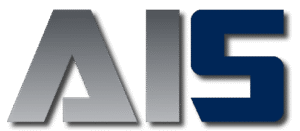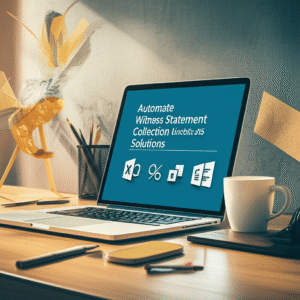Choosing the right document management system can define how efficiently your firm works, how confidently you meet compliance, and how well you deliver client value. iManage and NetDocuments are the two most widely adopted legal DMS platforms—both cloud-first, security-forward, and purpose-built for professional services. This week, we compare iManage vs NetDocuments across features, compliance, collaboration, Microsoft 365 integration, pricing, and overall fit for different firm profiles.
- Overview of the Platforms
- Features & Capabilities Comparison
- Compliance, Security & Risk Management
- Collaboration & Knowledge Sharing
- User Experience & Learning Curve
- Integration with Microsoft 365 and Other Legal Tools
- Pricing & Licensing Models
- Side‑by‑Side Comparison Table
- Pros & Cons of Each Solution
- Best Fit Scenarios
- Decision-Support Framework
- Verdict
- Conclusion
Overview of the Platforms
Both iManage and NetDocuments are mature, cloud-oriented document and email management solutions designed for law firms and corporate legal departments. They centralize work product into workspaces aligned to clients, matters, or projects, applying metadata, security policies, and governance. Both platforms modernize search, encourage consistent filing, and provide ethical walls, retention, and audit capabilities—critical for professional responsibility and information governance.
iManage evolved from a longstanding on-premise footprint to a robust cloud offering, with modules for records, threat detection, and knowledge. NetDocuments is a cloud-native platform with modular add-ons for predictive email filing, document automation, and structured collaboration. Each has deep integrations with Microsoft 365 and a partner ecosystem of legal-tech solutions.
Features & Capabilities Comparison
At a high level, iManage emphasizes rich workspace and governance controls, powerful search with AI assistance, and optional advanced threat analytics. NetDocuments leans into cloud simplicity, streamlined administration, predictive email management, and flexible external collaboration spaces.
- Workspace model: Both support client/matter workspaces with security inheritance and templates.
- Search & AI: iManage leverages AI-assisted search and classification; NetDocuments offers fast, precise search with faceting and saved searches, plus predictive email filing.
- Email management: iManage Smart Filing and NetDocuments ndMail both suggest filing locations based on context.
- Offline access: iManage Drive (mount as a drive) and NetDocuments ndSync enable offline work with sync and conflict handling.
- Knowledge management: Both enable saved searches, favorites, and knowledge curation; iManage offers additional knowledge-focused modules.
- APIs & extensibility: Both provide modern APIs and strong vendor ecosystems for matter management, eDiscovery, and automation.
Compliance, Security & Risk Management
Compliance posture is a core differentiator for legal DMS platforms. Law firms must enforce least privilege, prevent inadvertent disclosure, and prove defensible retention and auditability.
- Security certifications: Both vendors publicly list certifications such as SOC 2 Type II and ISO 27001, with data residency options across multiple regions.
- Ethical walls and need-to-know: Both support ethical walls, workspace security, and granular permissions.
- Data loss prevention and auditing: Comprehensive audit trails, event logging, and policy enforcement are native. NetDocuments’ Security Center and iManage governance tools help centralize control.
- Government and regulated environments: NetDocuments offers a FedRAMP Authorized environment for government-related use cases. iManage emphasizes robust governance and threat analytics but does not publicly advertise FedRAMP Authorization.
- MFA/SSO: Both integrate with modern identity providers (e.g., Microsoft Entra ID/Azure AD) and support MFA and conditional access policies.
Expert perspective: For most law firms, either platform can meet core security and compliance needs. The difference is often the implementation approach—designing ethical walls, metadata standards, and retention rules—and how cleanly those policies align with day-to-day workflows.
Collaboration & Knowledge Sharing
Client service depends on how fluidly teams create, review, and share documents—internally and externally.
- Internal collaboration: Both platforms support co-authoring with Microsoft 365, versioning, check-in/out, and commenting where enabled.
- External sharing: NetDocuments CollabSpaces and secure external sharing links allow controlled collaboration with clients and third parties. iManage supports secure sharing and link-based collaboration through its cloud services and integrated tools.
- Knowledge reuse: Workspace templates, saved searches, and matter taxonomies in both systems help firms avoid reinventing the wheel.
- Mobility: Native iOS/Android apps make correspondence and document review possible on the go, with security safeguards.
User Experience & Learning Curve
Adoption hinges on familiarity and fit with legal workflows.
- Desktop-first vs browser-first: iManage’s desktop integrations are deep and familiar to long-time users, while its modern web UI has evolved significantly. NetDocuments is browser-forward with polished Office add-ins for a lightweight desktop footprint.
- Email filing discipline: Both platforms use AI/predictive suggestions to reduce friction. Training users to trust suggestions and file consistently remains a key adoption task.
- Admin experience: NetDocuments is often praised for straightforward administration in the cloud. iManage offers extensive configuration depth that can be powerful in large, complex environments.
Integration with Microsoft 365 and Other Legal Tools
Microsoft 365 remains the authoring nucleus for legal work; both DMS platforms integrate deeply with it and other legal tech.
- Outlook: iManage Work and NetDocuments ndMail/Office add-ins allow drag-and-drop or predictive filing directly from Outlook.
- Word/Excel/PowerPoint: Ribbon add-ins handle save/open to DMS, metadata prompts, versioning, and co-authoring support.
- Teams integration: Both can surface workspaces in Teams, provide DMS-aware file tabs, and maintain single source of truth rather than duplicating content across Teams and DMS.
- Power Platform: Both expose APIs and connectors for workflows. Common automations include client intake, matter creation, and provisioning of workspaces with standardized security.
- Legal ecosystem: Integrations exist for matter management, timekeeping, eDiscovery, litigation support, and document automation tools. NetDocuments offers PatternBuilder for native document automation; iManage partners broadly and provides AI-assisted search and classification capabilities.
Pricing & Licensing Models
Both vendors use subscription licensing with per-user pricing. Specifics are quote-based and vary by region, modules, and contract duration.
- Base subscription: Core DMS features with storage entitlements.
- Add-ons: iManage (e.g., Records, Threat/behavior analytics, advanced governance); NetDocuments (e.g., ndMail, PatternBuilder, advanced governance/security features).
- Implementation: Data migration, metadata design, ethical wall configuration, and user training are material cost and timeline drivers.
- Total cost of ownership: Consider storage overages, sandbox environments, API usage, support tiers, and the cost of change management and training.
Tip: Ask for a proof of concept with a representative matter set and include success metrics (search relevancy, email filing accuracy, end-user task time savings, and admin effort).
Side‑by‑Side Comparison Table
| Aspect | iManage | NetDocuments |
|---|---|---|
| Deployment | iManage Cloud (flagship) and legacy on‑prem options | Cloud-native, multi-tenant; region selection |
| Core DMS | Workspaces, metadata, versions, check-in/out | Workspaces, metadata, versions, check-in/out |
| Search & AI | AI-assisted search and classification capabilities | Fast search with faceting; predictive filing in ndMail |
| Email Management | Smart Filing and Outlook integration | ndMail predictive filing; Outlook add-in |
| Records/Governance | Robust records management and governance modules | Retention, disposition, ethical walls, security center |
| Threat/Risk Analytics | Advanced user behavior analytics and threat detection options | Security analytics and administrative controls |
| External Collaboration | Secure sharing and link-based collaboration | CollabSpaces and secure external sharing links |
| Offline/Sync | iManage Drive for desktop/offline access | ndSync for desktop/offline access |
| Microsoft 365 | Office add-ins, Outlook, Teams integration, co-authoring | ndOffice, ndMail, Teams integration, co-authoring |
| APIs & Ecosystem | Modern APIs, extensive partner integrations | Modern APIs, broad legal-tech integrations |
| Security Certifications | SOC 2 Type II, ISO 27001 (publicly documented) | SOC 2 Type II, ISO 27001 (publicly documented) |
| Government Readiness | Strong controls; no public FedRAMP Authorization | FedRAMP Authorized environment available |
| Data Residency | Multiple regions with tenant-level controls | Multiple regions; tenant-level configuration |
| Document Automation | Integrates with third-party tools; AI-assisted knowledge | PatternBuilder (native) plus third-party integrations |
| Admin Experience | Highly configurable; depth suits complex orgs | Straightforward cloud admin; fast to operationalize |
| Typical Buyers | Mid-size to large firms; enterprise legal departments | Small to enterprise firms; government/regulated orgs |
| Licensing | Per-user subscription + optional modules | Per-user subscription + optional modules |
Pros & Cons of Each Solution
iManage
- Pros: Deep governance and records capabilities; powerful search; flexible configuration for complex ethical walls and metadata; advanced threat analytics options; strong desktop integrations.
- Cons: Configuration depth can increase admin complexity; change management required for modern web UI; external collaboration experience may require more design decisions and governance planning.
NetDocuments
- Pros: Cloud-native simplicity; intuitive admin; ndMail’s predictive filing boosts user adoption; excellent external collaboration controls; native document automation with PatternBuilder; FedRAMP environment option.
- Cons: Some advanced governance use cases may require add-ons or specific design patterns; offline sync requires careful deployment to avoid version conflicts; very large/complex security models can require meticulous planning.
Best Fit Scenarios
- Small firms and boutiques: NetDocuments is often faster to deploy with straightforward admin and external collaboration features. iManage can fit well when the firm needs deep governance out of the gate and has dedicated admin capacity.
- Mid-size firms: Both platforms are strong contenders. Evaluate email filing accuracy, Teams workflows, and how well governance requirements align with out-of-the-box features.
- Large firms/enterprise legal departments: iManage’s configuration depth and governance modules are appealing for complex matter security and records. NetDocuments scales well and offers FedRAMP for government-related matters.
- Government/regulated: NetDocuments’ FedRAMP Authorized environment can be decisive for agencies or contractors with federal requirements.
Decision-Support Framework
Four-Lens DMS Selection Model
- Risk & Governance: Ethical walls, retention, audit, certifications, regional residency.
- Productivity & Adoption: Email filing accuracy, search relevancy, offline experience, mobile usability.
- Collaboration & Client Service: External sharing controls, Teams co-authoring, link governance.
- Total Cost & Operability: Licensing, storage, admin effort, migration complexity, support ecosystem.
Practical Checklist
- Compliance must-haves: List required certifications, ethical wall patterns, and retention schedules. Which platform satisfies them natively?
- Email filing: Test predictive suggestions across litigation, transactions, and advisory matters; measure accuracy and user clicks.
- Search quality: Run real matters through a proof of concept; verify hit quality for titles, body text, and email content.
- Teams workflows: Validate co-authoring, link persistence, and security inheritance when content is accessed in Teams.
- External collaboration: Compare guest access, watermarking, expiry, and audit trails; simulate client share scenarios.
- Offline use: Pilot Drive/ndSync with traveling attorneys to gauge sync reliability and conflict handling.
- Migration plan: Assess metadata mapping, legacy email archives, and ethical walls during migration.
- Admin experience: Evaluate policy management, reporting, and support resources for your team.
- Cost modeling: Include licenses, implementation, training, storage overages, and ongoing support in a 3-year TCO.
- Change management: Prepare training pathways for attorneys, secretaries, and litigation support; set adoption KPIs.
Verdict
iManage and NetDocuments both deliver top-tier legal document and email management. iManage shines where complex governance, records management, and advanced threat analytics are priorities, especially in larger or highly regulated private organizations. NetDocuments excels in cloud simplicity, predictive email filing, intuitive administration, and secure external collaboration; its FedRAMP Authorized environment is pivotal for government-related work.
- Best for small firms and fast deployments: NetDocuments
- Best for complex governance and large enterprises: iManage
- Best for government or FedRAMP needs: NetDocuments
- Best for knowledge-rich search and configurable security at scale: iManage
Ultimately, run a structured pilot focused on search, email filing, and Teams integration—and weigh those results against your governance and cost profile.
Conclusion
Both iManage and NetDocuments can transform legal work when implemented with clear governance and adoption plans. Your choice should reflect mandatory compliance requirements, how your teams actually draft and file documents, and the cost to operate over time. A targeted proof of concept across real matters will make the winner stand out for your unique needs. If you need help planning or executing that journey, expert guidance can accelerate success.
Want expert guidance on improving your legal practice operations with modern tools and strategies? Reach out to A.I. Solutions today for tailored support and training.





